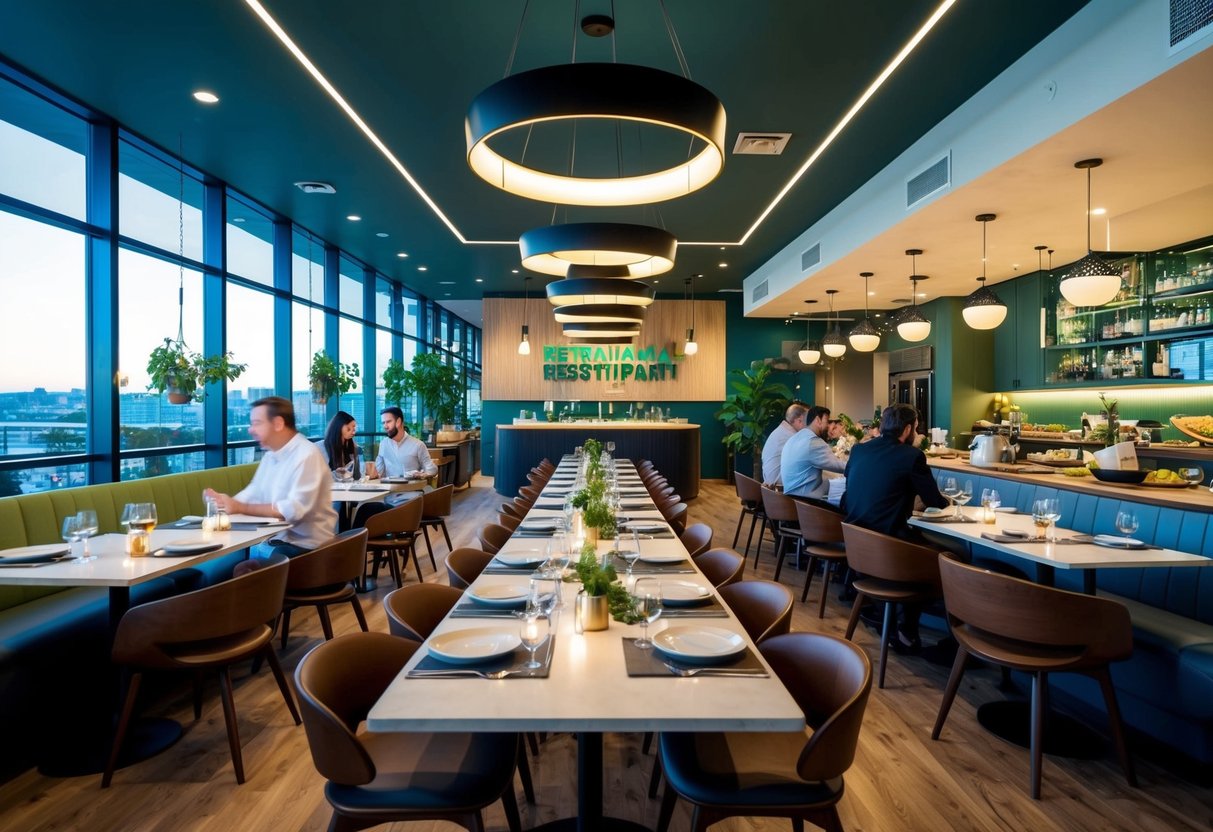The Future of Sustainable Dining: Innovations Changing the Food Industry
In today’s culinary landscape, sustainable dining is emerging as a key player. From farm-to-table practices to the reduction of food waste, eco-friendly practices are reshaping how we experience meals both in restaurants and at home. These innovations aim to foster a healthier planet while offering delectable culinary experiences.
The infusion of sustainable food practices into dining goes beyond just the ingredients. It encompasses everything from packaging to energy-efficient kitchen appliances. The industry is moving toward minimizing its environmental impact and promoting a culture of mindful consumption among its patrons. Restaurants adopting these changes are setting a standard for future dining experiences that prioritize the environment.
As technology and awareness advance, the food industry’s commitment to sustainability is becoming more evident. Changes are driven by a combined effort of consumer demand and innovative solutions. With these shifts, the future of dining promises not only delicious meals but also a more sustainable world for everyone to enjoy.
The Rise of Sustainable Practices in the Restaurant Industry
The restaurant industry is undergoing a transformation driven by sustainability. Restaurants are increasingly focusing on reducing their carbon footprint. This involves sourcing local and seasonal ingredients, which lessens the environmental impact. Shifting toward plant-based menus also plays a vital role in this movement. Plant-based foods tend to require fewer resources, making them a practical choice for sustainability.
Consumer preferences are rapidly changing, with more individuals seeking environmentally responsible dining options. This shift in consumer behavior encourages restaurants to implement sustainable practices. Diners who are passionate about the environment tend to support establishments that share their values. This trend is not only fostering a culture of environmental responsibility but also promoting a healthier lifestyle among consumers.
Waste reduction is another key aspect of sustainable practices in the restaurant industry. Many establishments are now committed to minimizing food waste through innovative techniques. Composting and donating excess food are becoming common practices. These methods help reduce waste while positively impacting the community and environment. Restaurants are increasingly participating in programs and certifications that highlight their commitment to sustainable operations. Certifications such as LEED and Green Restaurant Certification offer guidelines and recognition for eco-friendly practices. These acknowledgments assure customers of a restaurant’s dedication to sustainability and often influence customer choices.
By integrating these sustainable practices, the restaurant industry demonstrates its capability to adapt and thrive. As sustainability becomes a more integral part of dining experiences, it not only benefits the environment but also aligns closely with evolving consumer demands.
Consumer Preferences Shaping Dining Experiences

Shifts in consumer preferences are significantly influencing how dining experiences are crafted. Restaurants are focusing on providing high-quality food and embracing healthy eating trends to cater to evolving consumer demands.
Demand for High-Quality Food
Consumers increasingly seek high-quality food when dining out, prompting restaurants to focus on premium ingredients. Emphasis is placed on sourcing locally and ensuring freshness, which boosts flavor and appeal. High standards in food preparation and presentation further enhance dining experiences.
Additionally, ethical sourcing and sustainability are of paramount importance. Many patrons prioritize restaurants that source ingredients responsibly, which encourages transparency in supply chains. This commitment to quality is key in building trust and loyalty among diners.
Reliability and consistency are crucial. Diners expect the same high level of quality in every visit, pushing restaurants to maintain excellence. Such dedication to quality not only satisfies immediate dining needs but also fosters long-term relationships with patrons.



